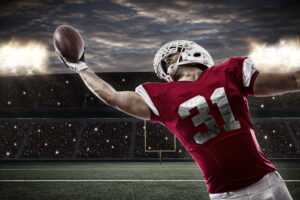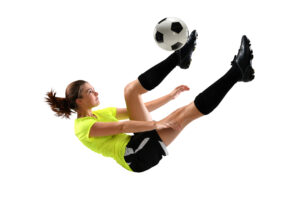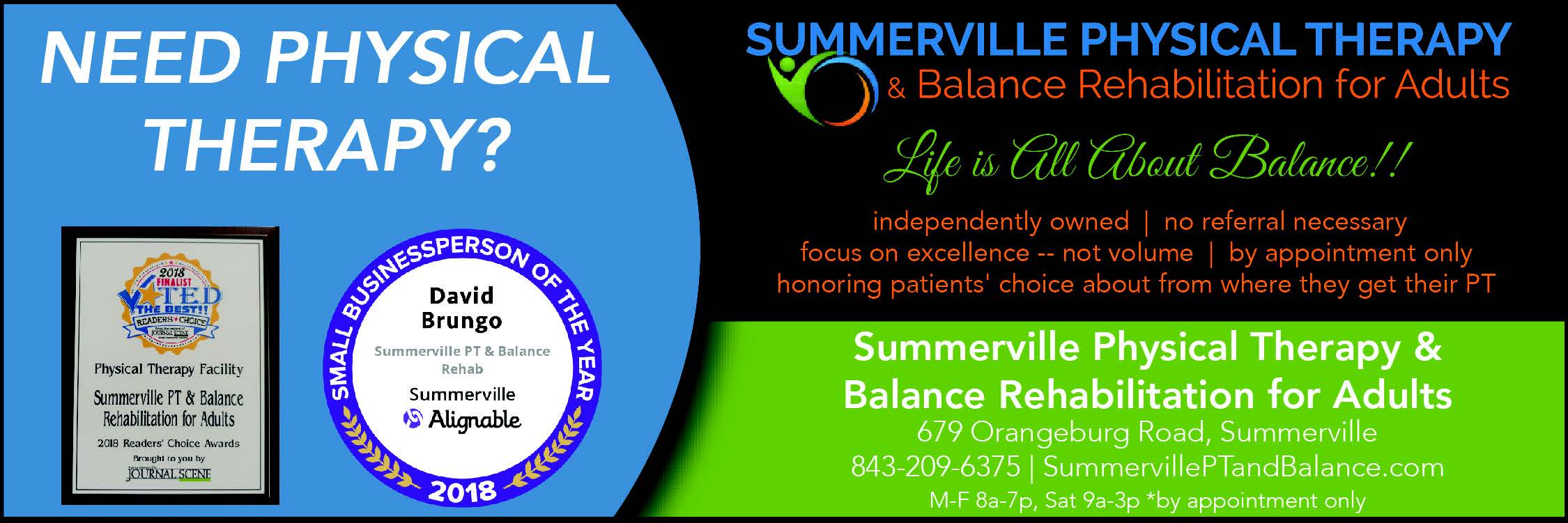The Importance of Vestibular Health to Hand:Eye/Eye:Foot Coordination
By David P. Brungo, PT, Expert Contributor, Summerville PT and Balance Rehab for Adults
The football receiver sprints as hard as he can down the field, stops on a dime and turns around just as the football approaches him at over 50 MPH. The player instantly picks up the ball in his vision and reacts reflexively to contort his body in a backward arching twist with his head upside down and arm outstretched behind him as his eyes track the ball into his hand. He makes an “ESPN Top 10” kind of catch and made it look really, really easy, too!
The reason this athlete makes this look so easy is both simple and complex. It’s simple in that some of us are simply predisposed to being better athletes than others due to their genetic inheritance. The more complex discussion to have is: HOW does it happen in real time? There are many reasons why an NFL wide receiver (and many others among us) can make an incredible catch like this, but right up at the top of this list is the fact that he has a finely tuned and optimally healthy vestibular system. The vestibular system is complicated, involving your eyes, ears, spinal cord and of course your brain to work seamlessly under the radar to process your sensory environment at the speed of Life, whatever that speed may be at the moment, so that you can function successfully within that environment.

Our vestibular systems are critical to our actual and perceptual awareness and control of our sensory environments. What does THAT mean?!?! It means this: My actual environment might be that I simply sat down on my bed and laid down onto my right side, after which I fell fast asleep (I wish it were that easy!) However, my perceptual reality of the same moment in time might be profoundly different, thanks to a dysfunctional vestibular system. So, when I laid onto my right side in bed, components of my unhealthy vestibular system might be telling my brain something all wrong, causing me to feel dizzy or experience vertigo (i.e., a spinning sensation in your head or a sense that the environment is spinning) or even “jolts” that feel like little knocks happening inside your head.
Of the many components of our vestibular system, today we are going to focus on the Vestibulo-Ocular Reflex, or VOR, and apply its importance to what is known as hand:eye/ eye:foot coordination. These aspects of our coordination are what allow you to catch a juggling pin or Frisbee with your hand easily, or judge how fast that fastball is coming in and at what angle so as to get yourself into position to catch it easily in your mitt, or maybe judge the exact time and place to bicycle kick the soccer ball into the net from beyond the box!
“SHEEEEEE Shoots and SCORES!!!”

(Soccer player executing a beautiful Bicycle Kick — but only because she’s got a healthy vestibular system!!!)
According to the Encyclopedia of Neuroscience (2009):
“The vestibulo-ocular reflexes (VORs) are a group of eye movements whose goal is to rotate the eyeball in a particular direction and with a specific speed such that the world remains stable on the retina during head movement.”[1]
OK– so what does that really mean? It means that the VOR is the reason you can still see your environment clearly and with stability to be able to control your position, speed, and SAFETY no matter what you’re doing. Most of us don’t have any trouble driving down a heavily treed highway while the sun bursts through the trees intermittently into our eyes causing us to squint but all the while being able to control our vehicle safely. But for those of us who’ve had some vestibular dysfunction involving gaze instability (i.e., the sensation of dizziness or vertigo or headache or imbalance/dysequilibrium when we track something with our eyes and/or head in a complex environment), simple tasks we often take for granted can be a real challenge involving real suffering and reduced Quality of Life.
So, don’t “drop the ball!” If you’re having trouble with dizziness or a sense of imbalance when you’re moving or performing certain activities, or you just can’t seem to coordinate your movements very effectively, consider seeing your doctor or a vestibular ENT physician. Physical therapists, eye doctors and audiologists are also good choices when it comes to helping optimize one’s vestibular health.
“You don’t have to be a superstar athlete to still be in control of your domain!”
[1] Vestibulo-Ocular Reflex. D.E. Angelaki, in Encyclopedia of Neuroscience, 2009.

